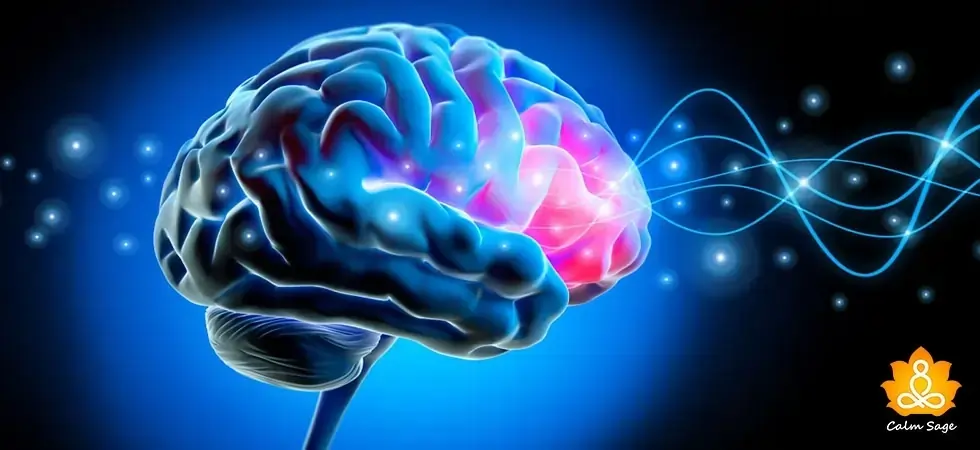“I Feel Like I’m Living on Autopilot” | What it Means & How to Stop

Have you ever had one of those days when you found yourself just “going through the motions” or relying on your muscle memory instead of being present and truly living your life? This is a common experience that many people go through in their lives – especially when they are dealing with uncomfortable emotions or experiences. This phenomenon can also be described as “living on autopilot”.
When every day, every task, every word feels exactly the same; when you don’t know what you’re doing as long as you’re relying on your muscle memory, is when you know you’re living on autopilot mode.
Trust me, when I say that you’re not the only one who feels this. What is known as “going through the motions” to some, to others, is “living on autopilot”. No matter what you choose to call it, the effect is the same – poor mental health and well-being. Living on autopilot can be a serious symptom of depression, anxiety, and loneliness, and if left unaddressed can lead to isolation.
Let’s explore what it means when you feel like you’re living on autopilot and how you can stop living this way.
What Does “Living on Autopilot” Means?
When you begin to feel like you’re living on autopilot, it can refer to feelings opposite of mindfulness. Being on autopilot means that your brain has switched to the autopilot mode where you go through your daily habits, thoughts, and decisions without thinking about them or putting much effort or thought into them.
When this happens, you begin to miss out on your life experiences and chances because you’re caught in a cycle of repeating your mundane tasks, subconsciously.
If you don’t know if you’re living on autopilot, here are some common signs to help you be aware of the mode;
- Your life and routine have become predictable
- You are always mentally zoned out
- You struggle to remember things
- You do your tasks and daily things without thinking about them
- You oblige to do more than you’re capable of
- You feel fear or unease all the time
- You forget some moments of your day
- You easily let your mind wander
- You feel as if you’re merely existing or surviving rather than living or enjoying life
If you can relate to these signs and feelings, then here are some ways to help you stop living on autopilot and enjoy life as it’s meant to be;
How to Stop Living on Autopilot?
1. Focus on Self-Reflection
When you learn to self-reflect, you become more self-aware of your feelings and thoughts. Self-reflection can also help you improve your relationship, communication, and lower daily stress that might contribute to your being on autopilot. When you know what’s going on inside can help you change your way of life, outside.
Here are some things you can do to increase your self-awareness through self-reflection;
- Learn to live in the moment
- Notice what you’re feeling and label them
- Identify your triggers and patterns
- Increase self-curiosity
2. Let Your Inner Compass Guide You
Your inner compass is what gives you direction in life and when you lose direction in your life, that’s when you begin to feel like you’re living on autopilot. To stop feeling this way and find your inner compass, ask yourself, “What do I want from life?” “What is lacking in my life?” “Where do I want to be in life?” The answers to these questions will guide you to your next steps.
Think of this as an internal navigation system, your IPS if you may. Following your inner compass can help you feel more connected with your inner self and find what you’re meant to do. When your inner compass speaks, you stop living on autopilot mode.
3. Leave Your Comfort Zone
Your comfort zone sounds like the best place to be, right? Well, I won’t argue because I feel the same, however, it’s your comfort zone that can hold you back and make you live on autopilot too. It’s because living in your comfort zone is predictable; there can be no surprises that shake the foundation of your living, right? It’s your safe space, but it’s also one that can begin to affect your well-being.
To go beyond your comfort zone, you can try;
- Do something you never thought of doing before
- Travel to a place where you’ve never been before
- Volunteer
- Change your routine
- Face your biggest fears or weaknesses
4. Set Daily Intentions
Just after you wake up and before you leave your bed, just lie there and reflect. Ask yourself what you want to do today and what you would like to achieve. This is called setting intentions and setting daily intentions is one way to stop living on autopilot mode as it gives you something to look forward to in your day.
You draw up your desires with your intentions and motivate yourself to do something rather than just go through the motions of the day.
5. Find Joy in Life’s Little Moments
If you want to stop living on autopilot, you need to find joy in life’s little moments. The morning cup of tea or coffee, the tweeting of the birds, the smell of the blooming flowers – all these can bring joy into your life if you allow it. And you have to. When you learn to see things from a new perspective, you’ll see how different each moment is in your life.
Finding joy is not that hard when you know how to look for it. Here are some other ways you can find joy in life’s little moments;
- List out all the things that bring a smile to your face
- Perform an act of kindness for someone
- Express your gratitude for everything you do
- Go on a stroll
6. Live Adventurously
Adventure can be a great tool when you want to stop being on autopilot mode. It’s also one of the best ways to bring spice to your monotonous life. Living adventurously doesn’t mean that you go out on physical adventures, but it means that you do something you have been too scared to do before.
Here are some things you can begin with;
- Dine in a restaurant you’ve never been to before
- Try a new recipe
- Make new friends or join a group
- Plan a trip
- Allow yourself to live one day at a time
7. Become More Mindful
Living on autopilot means you stop being aware of your present moment and just begin to rely on your muscle memory. This can be countered with mindfulness practice. Being more mindful means being aware of your present moment, so give that a try. Mindfulness can help lower anxiety and stress, and increase your happiness. Instead of focusing on negative experiences of the past or the worries of the future, mindfulness helps you focus on the present.
Here are some ways you can become more mindful in life;
- Being aware of your thoughts, feelings, and emotions
- Allowing self-reflection without judgment
- Focusing on breathing
- Focusing on your five senses
8. Slow Down in Life
When you begin to feel like you’re going through the motions and living life on autopilot, then it could be a sign that you need to slow down in life. It’s a sign that you’ve been living a fast-paced life with little to no attention to yourself. Instead of rushing through life, slow down, and give yourself time to unwind.
Take care of your well-being, improve your relationship with yourself, and focus on improving your emotional connection. When you slowdown in life, you learn to make better decisions, connect better with others, and lower your stress levels. It also allows you to bring your awareness to the present moment as you navigate your life.
What Next?
When life becomes monotonous and you feel like you’re living on autopilot, learn to take a break and slow down. Living on autopilot all the time can affect your mental well-being and contribute to issues like poor self-awareness, depression, anxiety, loneliness, and more. Knowing the signs of being on autopilot mode is the first step.
Going through the motions in life can make you feel hopeless, but with the right steps and help, you can stop feeling this way and take back control of your life. The aforementioned ways can help you take control of your life and give meaning, direction, and purpose to your life.
If it still does not help, then don’t hesitate to reach out to a mental health professional. A therapist can help you figure out why you feel this way and how you can change your way of life. Little things you do can help!
Found this article helpful? Let us know in the comments below by sharing your favorite ways to stop living on autopilot and be more present in life. You can also share your thoughts by writing to us at info@calmsage.com.
Take Care!




















